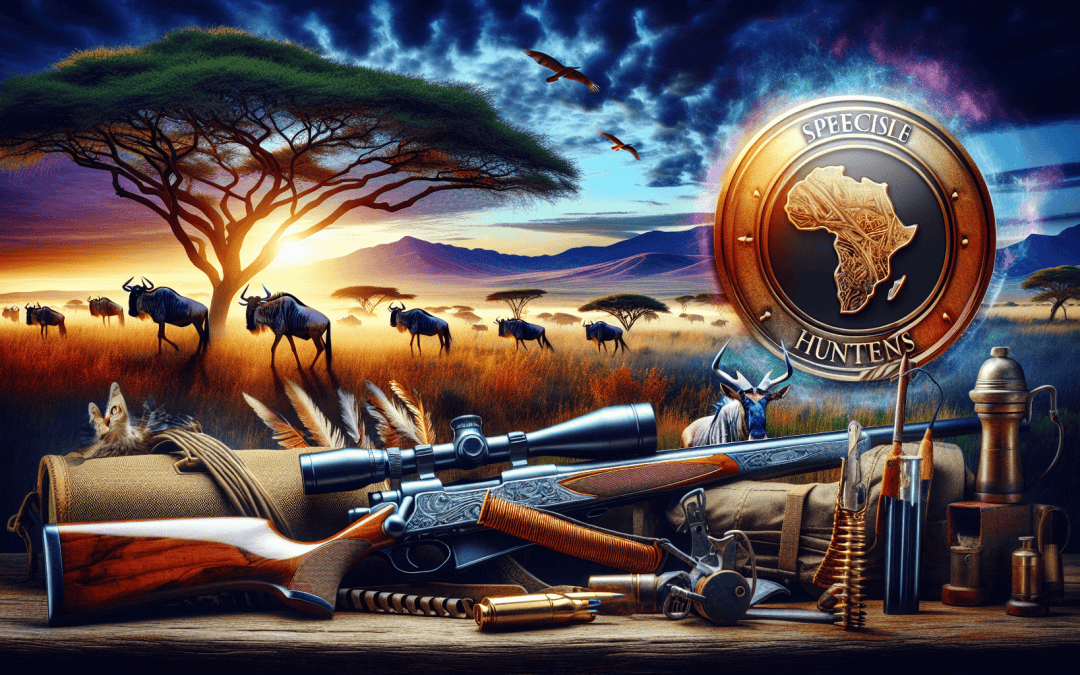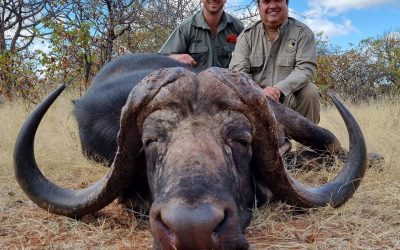So you’ve decided to embark on a thrilling hunting adventure in the vast wilderness of Africa. But before you take aim at those elusive species, it’s crucial to understand the rules and regulations governing the hunt. This article aims to shed light on whether special permits are required for hunting specific species in Africa, providing you with essential knowledge to ensure a smooth and legal expedition. Whether you’re an experienced hunter or a first-timer, this information is invaluable in navigating the intricacies of African hunting permits.
Special Permits Required for Hunting Certain Species in Africa
Introduction to hunting in Africa
Hunting in Africa is a popular activity for both locals and international tourists. The continent is known for its diverse wildlife, which includes a wide range of species that attract hunters from around the world. However, it is important to note that hunting in Africa is strictly regulated to ensure the conservation of wildlife and protection of endangered species. As a hunter, it is crucial to be aware of the special permits required for hunting certain species in Africa to participate in this activity responsibly and legally.
Overview of hunting regulations in Africa
Africa is home to a vast number of countries, each having its own hunting regulations. While some countries have banned trophy hunting altogether, others have implemented strict regulations to ensure ethical and sustainable hunting practices. It is essential for hunters to research and familiarize themselves with the regulations of the specific country they plan to visit. This includes understanding the legal hunting seasons, bag limits, and required permits for hunting specific species.
Categories of hunting permits in Africa
Hunting permits in Africa can generally be categorized into three main types: general hunting permits, special permits for endangered species, and permits for dangerous game hunting. General hunting permits allow hunters to pursue common game species that are not endangered or protected. These permits usually have specific regulations regarding bag limits and hunting seasons.
Endangered species and protected areas
To protect the biodiversity of Africa, many countries have designated certain species as endangered or protected. These species are typically off-limits for hunting, and obtaining a special permit is required if an exception is made. It is imperative to respect these regulations and avoid hunting any endangered or protected species, as they play a crucial role in maintaining the delicate ecosystem of the continent.
Specific permits required for hunting in Africa
In addition to general hunting permits, certain species in Africa require specific permits due to their vulnerable status. These permits are typically issued on a limited basis and are subject to strict regulations. Notable examples include permits for African elephants, rhinos, lions, and leopards. Hunters interested in pursuing these species must apply for the appropriate permits well in advance and comply with all the regulations imposed by the respective country.
CITES permits for international hunters
The Convention on International Trade in Endangered Species of Wild Fauna and Flora (CITES) is an international agreement aimed at protecting endangered species from overexploitation. In the context of hunting in Africa, CITES permits are necessary for international hunters who wish to bring their trophies back to their home countries. These permits ensure that the hunting was conducted legally and sustainably. It is essential for international hunters to familiarize themselves with the CITES regulations of their home country and obtain the required permits before embarking on their African hunting adventure.
Regional or country-specific permits
While some permits apply to the entire continent, certain countries or regions within Africa may have additional permit requirements. This can be due to specific conservation efforts or regional agreements to protect certain species or habitats. Hunters should consult the official websites or authorities of the country they plan to visit to ensure they have all the necessary permits for their chosen hunting activities.
Additional permits for trophy hunting
Trophy hunting is a controversial form of hunting where individuals seek to obtain specific animal parts, such as horns or skins, as souvenirs. This type of hunting often requires additional permits beyond the standard hunting permits. These permits ensure that the hunt is conducted in a regulated manner and that the trophies acquired do not come from endangered species or protected areas. It is crucial for trophy hunters to educate themselves on the local regulations and obtain the required permits to engage in this activity responsibly.
Permits for hunting dangerous game
Africa is known for its diverse and often dangerous game species, including African elephants, Cape buffalo, and crocodiles. Hunting these species requires special permits due to the inherent risks involved. These permits typically have more stringent requirements, including proof of appropriate hunting experience, firearm competence, and the engagement of professional hunting guides. The purpose of these additional permits is to ensure the safety of both hunters and the wildlife being hunted.
Ethical considerations and responsible hunting
While obtaining the necessary permits is essential, responsible hunting goes beyond legal requirements. Ethical considerations should guide every hunter’s actions, ensuring the preservation of wildlife and the habitats they depend on. It is important to hunt selectively, avoiding targeting young or reproducing individuals, and to prioritize conservation efforts by supporting local communities and projects that promote sustainability. By adhering to ethical hunting practices, hunters can contribute to the long-term conservation of Africa’s unique wildlife heritage.
In conclusion, hunting certain species in Africa requires special permits to ensure the protection of endangered species, the conservation of wildlife, and responsible hunting practices. As a hunter, it is crucial to understand and comply with the hunting regulations of the specific country or region being visited. By obtaining the appropriate permits, adhering to ethical considerations, and engaging in responsible hunting, hunters can contribute to the preservation of Africa’s magnificent wildlife and support sustainable conservation efforts.











